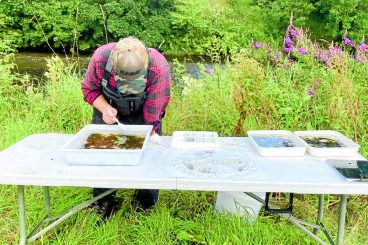And that was a slight rise on 2014, when the cost locally came in at £84,960.
The figures form part of NFU Mutual’s annual Rural Crime Report, which show that there was a cost to Scotland last year of £1.7m, and £43.5 million to the UK as a whole.
According to the rural insurer, the items most commonly targeted by thieves across Scotland over the last 12 months were quad bikes, tools from farms and businesses and oil and diesel.
Martin Malone, NFU Mutual regional manager for Scotland said: “It’s good news that rural crime in Scotland has gone down for the second year running. We believe that it’s largely down to the massive efforts of rural dwellers, the police and ourselves to make it hard for thieves to operate in the countryside.
“However, years of experience working with farmers and police to tackle rural crime has taught us one important message: thieves don’t go away; if you improve security in one area they will step back, and seek a way to bypass your security measures – or find something else they can steal from farms.
“Unfortunately, this means farmers face a continual battle to stay one step ahead of the thieves, by keeping an ear to the ground to follow local crime trends and continually reviewing and improving security.”
He said the new Scottish Partnership Against Rural Crime (SPARC) initiative is already showing results and sending a clear message to would-be thieves that the countryside is not an easy target.
And Mr Malone said: “Rural thieves are becoming increasingly sophisticated and using computers rather than bolt cutters to steal from farms and country properties. Farmers and police have been working hard to adopt high-tech security measures to tackle the problems which now include: cloning tractor identities, advertising non-existent machinery in agricultural publications and stealing the GPS computer systems which are a key part of modern farming.”
The survey also revealed that social media is now the main resource for sharing information about crime in rural communities and is a valuable tool – not only in the prevention of rural crime but also for catching criminals and returning stolen goods.
“Our advice to people living and working in the countryside remains the same; evaluate your current security measures making improvements where necessary, remain vigilant and report any suspicious activity to the local police but also community watch schemes,” added Mr Malone.
For more information and advice on how to beat rural crime visit www.nfumutual.co.uk/ruralcrime
£87k cost of rural crime

RURAL crime cost Dumfriesshire £87,848 last year, according to new figures.
Agencies are responding to the incident




















